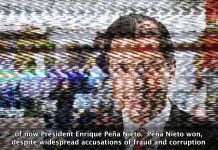In a gripping and controversial documentary titled “Improbable Collapse: The Demolition of Our Republic,” viewers are presented with a thought-provoking exploration of the events surrounding the collapse of the World Trade Center (WTC) buildings on September 11, 2001. Through meticulous research and analysis, the film delves into the discrepancies and inconsistencies within the official narrative presented by the 9/11 Commission Report, shedding light on lingering questions and conspiracy theories surrounding the tragic events of that fateful day. From the rapid and symmetrical collapse of the WTC towers to the presence of thermite residue in the rubble, “Improbable Collapse” challenges viewers to reconsider the conventional explanations and delve deeper into the complexities of one of the most significant events in modern history.
Central to the documentary’s narrative is the examination of the structural integrity of the WTC buildings and the factors contributing to their collapse. Drawing upon expert testimony and scientific evidence, the film raises doubts about the feasibility of the official explanation that the towers collapsed solely as a result of the impact of the hijacked planes and subsequent fires. Through computer simulations, architectural analysis, and eyewitness accounts, “Improbable Collapse” offers a compelling case for alternative theories, including the possibility of controlled demolition. By presenting a comprehensive overview of the available evidence and expert opinions, the documentary invites viewers to critically evaluate the official narrative and consider the implications of a potential cover-up or conspiracy surrounding the events of 9/11.
Yet, amidst the skepticism and controversy, “Improbable Collapse” also delves into the broader implications of the events of 9/11 on American democracy and civil liberties. By raising questions about the transparency and accountability of government institutions, the film prompts viewers to reflect on the erosion of trust in public institutions and the implications for democratic governance. Through interviews with whistleblowers, activists, and survivors, “Improbable Collapse” offers a sobering reminder of the importance of vigilance and skepticism in the face of official narratives that may not fully account for the complexities of historical events. Ultimately, the documentary serves as a call to action for viewers to engage critically with the narratives presented to them and seek out the truth in the pursuit of justice and accountability.

































